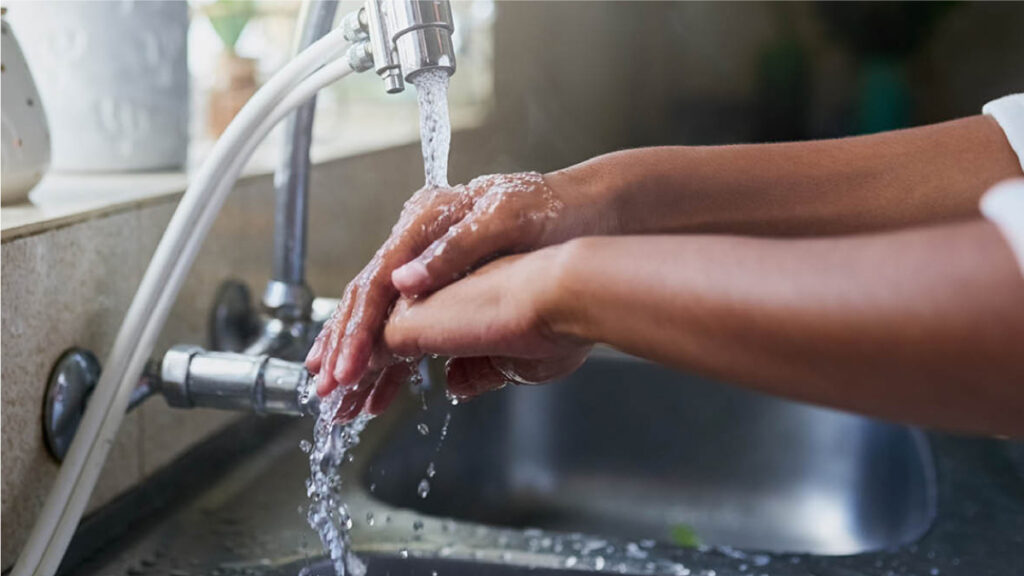Washing your hands seems like the simplest thing to do, so you are probably wondering how it is possible to do it wrong. But it is possible to wash your hands wrongly.
It is essential to do it properly, especially as Coronavirus does not seem to be clearing out any time soon. Not washing your hands properly might make you vulnerable to infections by viruses and bacteria, particularly those that you might pick up with your hands from surfaces around you.
Here are some common handwashing mistakes that you should avoid to stay safe;
Neglecting the soap
If you have been washing your hands with only water, you have been doing it wrong. Even if you are in a rush, never forget to use soap to wash your hands. The compounds in soap (surfactants) help remove dirt from your hands more efficiently than just using water.
Not washing for long enough
For your handwashing exercise to be effective, you must wash your hands long enough to kill the germs on your skin. Twenty seconds of handwashing should do the trick. If you do not feel like counting, keep track of time by humming the “Happy birthday” song to yourself twice.
Not drying your hands
It is a lot easier for germs to stick to your hands when they are wet. You can reduce the chances of contamination after washing by drying your hands carefully with a clean paper towel.
Neglecting to wash your fingernails
Your fingernails are a cozy hiding place for germs. This is why paying special attention to your fingernails when washing your hands is important. Rub the fingernails of your right hand against the palm of your left hand and do the same for your right hand while washing thoroughly with soap and water. This will ensure the removal of the germs trapped under your nails.
Using only a hand sanitiser
Depending solely on sanitisers is one of the most common handwashing mistakes. Hand sanitisers are helpful when you do not have access to facilities for complete hand washing. But they were never meant to take the place of good old soap and water. Hand sanitisers are not guaranteed to remove all the germs on the surface of your hands or even chemicals you may have come in contact with. Even if you use hand sanitisers regularly, you still have to wash your hands with soap and water.
Touching faucets and door handles right after washing
After you have washed your hands, one of the quickest ways to re-contaminate them is by touching the tap faucet and door handles, especially in public spaces. To avoid this, touch the faucet and door handles using a paper towel or hold the door open with your foot till you go through. Regularly clean and disinfect these surfaces in your home to keep them germ-free.
Not washing your hand towels regularly
Using dirty hand towels, even after you have washed your hands the right way can render the entire exercise useless. To be safe, ensure that you keep all your hand towels fresh and washed. It is safest to have many available so you can comfortably rotate them.
Not washing the back of your hands
It is easy to neglect to wash the back of your hands in your handwashing routine. You might not pay that much attention to it but the back of your hands are exposed to just as many germs as your palms. When washing, make sure to scrub them thoroughly with soap and water.
Using dirty soap bars
Bacteria can settle on the surface of your bar soap and accumulate. While it is difficult for the bacteria to be transferred from the soap to your hands, it can’t hurt to eliminate any surface that can encourage bacteria breeding in your environment. Clean your soap dish and try to keep your soap bars dry as often as possible.
Not using enough soap
Using soap makes it easier for the germs to come off your hands. Do not use soap sparingly. Use enough to ensure that all parts of your hands are lathered up so that you do not retain bacteria in some parts of your hands.
If you are guilty of one or more of these handwashing mistakes, it’s time to make adjustments and adopt correct handwashing measures. Help curb the spread of coronavirus and other harmful microbes. Protect yourself and the people around you by ensuring that you wash your hands properly and regularly.

